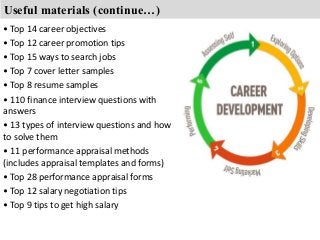
Missouri's financial planners can help with a variety of wealth management tasks, such as trust formation and management and investment advising. The low cost of living and attractive tax structure make Missouri an attractive place to practice financial planning. California has less coastline than Missouri, but the state is home to many parks and waterways.
Fee-based comprehensive planning
Missouri financial planners offer fee-based complete planning. These financial advisors can offer advice based on a fixed fee, a percentage or both of the client's AUM. These agreements allow advisors to offer more services and keep track of client progress. While the compensation model for these planners has been a hot topic, many people agree that it is an appropriate choice for most clients.
Whatever method you choose, it is important to understand that you will pay a fee. You will want to ensure that your fee is reasonable and covers the services you need. A fee-based planner will help you make better decisions about your money based on a comprehensive understanding of your unique goals and needs. Financial planners work as fiduciaries. Their main focus is on you. They can also assist you in implementing your financial plan.

Fee-only
There are many types Missouri financial advisors. Using a website like WiserAdvisor, you can find pre-qualified financial planners in Missouri by checking out their background information. This will allow you to work with an advisor who can help you reach your financial goals.
Fee-Only Financial planners are an alternative type of advisor that works with clients in Missouri as well as the surrounding states. They do not work for commission-based companies and always put their clients' interests first. Fee-only financial advisors are not paid by any of these firms. They are independent and not affiliated with any insurance company, brokerage firm, or bank.
Education
There are many avenues to receive a degree in financial planning. The best way to do this is by going to graduate school. American College is recognized as a leading institution in financial planning education. They won't reveal their enrollment numbers, but they claim that they have the highest number of financial planners in the country. They have strong ties with insurance companies, brokerage firms, and other financial firms, and they offer courses and training materials that help planners stay abreast of industry developments.
The Missouri Securities Division must license you to become a financial planner. To become a financial planner in Missouri, you must pass the series 63/66 exam. You also need to take a training course. Once you've been registered, you need to take another training program every two years. Then you must take at least 16 hours of continuing education every two years.

Outreach
Financial Planners of Missouri Outreach provides financial planning services free of charge to both individuals and small-businesses throughout Missouri. They assist people in making informed financial decisions and providing education about finances. The organization has a strong commitment to helping the communities they serve. There are several outreach programs available for clients.
FAQ
What tax do I have to pay on consulting income?
Yes, tax will be payable on any consultancy profits. The amount depends on how much you earn per year.
If you're self-employed, you can claim expenses on top of your salary, including rent, childcare, and food.
But, interest payments on loans, vehicle and equipment depreciation will not be allowed to be deducted.
You cannot claim back less than PS10,000 in a given year.
However, you might still have to pay tax if your earnings are higher than the threshold. This depends on whether you are an employee or contractor.
Employers are taxed via PAYE (pay as your earn), and contractors through VAT.
What is the difference?
A consultant provides advice on a topic. A consultant provides solutions to problems.
A consultant works directly with clients to help them achieve their goals. The advisor provides indirect advice through books, magazines lectures, seminars, and the like.
How do I become successful as a consultant?
Finding a passion area is the first step. Then you have to build relationships. It is crucial to learn about your clients and understand their needs. You must also deliver results.
While you don’t necessarily have to excel at every task, you should be better than all the rest. You need passion for what your do. It is not enough to simply say, "I want to become a consultant." You have to believe in yourself, and in what you are doing.
How much does it cost for a consultant to be hired?
There are many factors that go into the cost of hiring a consultant. These are:
-
Project size
-
Time frame
-
Scope of work
-
Fees
-
Deliverables
-
Other considerations such as experience level, location, etc.
What types of contracts exist for consultants?
When they are hired, most consultants sign standard employment contracts. These agreements specify how long the consultant will be working for the client and what he/she will be paid.
Contracts can also indicate the areas of expertise that the consultant will concentrate on and the compensation they will receive. One example is that the agreement may specify that the consultant provides training sessions and workshops, webinars, seminars, or other related services.
Sometimes the consultant will simply agree to complete a task within a certain timeframe.
Many consultants also sign independent contractor agreement in addition and standard employment agreements. These agreements allow the consultant not only to work for himself/herself but also provide payment.
How does consulting differ to freelancing
Freelancers can be self-employed people who provide their services to clients, without the involvement of employees. They charge hourly rates depending on the amount of time spent on a client's projects. Consultants work for companies and agencies that employ them. Their salaries are paid usually monthly or annually.
Consultants often have more flexibility, while freelancers can choose to work when they want and set their own rates. Consultants, however, often have better benefits such as retirement plans, vacation days, and health insurance.
Statistics
- According to IBISWorld, revenues in the consulting industry will exceed $261 billion in 2020. (nerdwallet.com)
- 67% of consultants start their consulting businesses after quitting their jobs, while 33% start while they're still at their jobs. (consultingsuccess.com)
- So, if you help your clients increase their sales by 33%, then use a word like “revolution” instead of “increase.” (consultingsuccess.com)
- "From there, I told them my rates were going up 25%, this is the new hourly rate, and every single one of them said 'done, fine.' (nerdwallet.com)
- WHY choose me: Why your ideal client should choose you (ex: 10 years of experience and 6-week program has helped over 20 clients boost their sales by an average of 33% in 6 months). (consultingsuccess.com)
External Links
How To
How can I find a good consultant for my business?
Finding a great consultant starts with understanding your expectations. Do you want them to help you improve your website's performance? Do you want them to optimize your site to rank higher in search engines? Maybe you want someone to check on your current hosting provider and tell you if it is in need of improvement. When you are clear about the services you require, you can start to look at other companies. While there are many consultants that claim to be able provide these services for you, not all of them will. How do you select the right consultant for your project? Here are some tips to help you choose a consultant.
-
Get recommendations. This is the best way to select a consultant. You don't want to hire someone you've never heard of before because you'll likely pay too much. You don't want to work alongside someone whose reputation hasn't been established. If you're lucky enough to get referrals from people you trust, then great! However, even if this is not possible, you might still be able check reviews online. Seek out testimonials from satisfied clients.
-
Ask around. Many people are not aware of the benefits of hiring a consultant. They assume that their current situation is fine and they don’t need changes. However, this is usually untrue. Even if results are good, there is a chance you haven’t been keeping up-to-date with new trends and technologies. Relying on outdated methods will prevent you from maximizing your potential for growth. It's worth asking your friends and family for recommendations to help you find the right consultant.
-
Check their qualifications. When you're looking for a consultant, it doesn't matter whether you're building a small blog or launching a multi-million dollar eCommerce store; you want to be sure that whoever you hire has the skills needed to handle your project. Check that they are qualified to complete the tasks and have enough expertise in the chosen area.
-
Find out what type of projects they are skilled in. Although it might seem like everyone can do everything, this is not true. Some areas require specific education or training. A developer who is a specialist in Drupal would not be able to help you build a WordPress theme. Graphic design and programming languages are all subject to the same rules. It is important to inquire about the types of projects that they work on.
-
Know what they charge. As we stated, you don’t want to pay too little for a consultant. However, you don't need to pay too much. Consultants come from all walks of life. Some charge hourly rates while others bill per project. It's cheaper to know upfront what you are paying than later.
-
Find out what they offer. Are they willing to provide free consultations? Will they give you advice on how to set up your own system? Is there a guarantee that your site will rank higher after working with them? You can cancel your consultation at any time without penalty if you are not satisfied with what you heard.
-
Also, ask if discounts are available for multiple months and years. Many consultants offer discounted pricing for extended periods of time. Although you do not have to commit to a year, it is possible to take advantage of any offers they may offer.